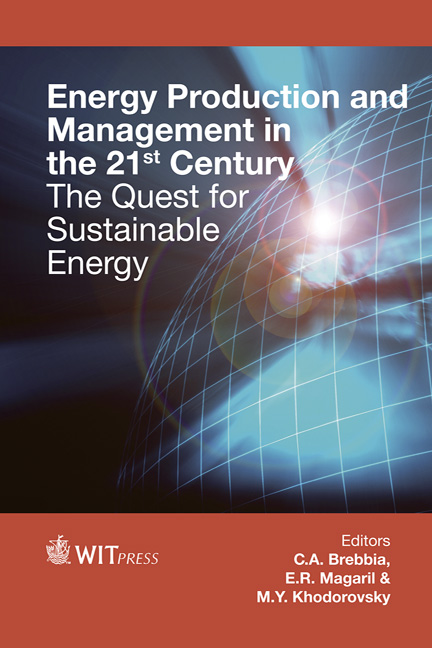Estimation Of Synchronous Generator Participation In Low-frequency Oscillations Damping Based On Synchronized Phasor Measurements
Price
Free (open access)
Transaction
Volume
190
Pages
7
Page Range
319 - 325
Published
2014
Size
652 kb
Paper DOI
10.2495/EQ140311
Copyright
WIT Press
Author(s)
P. Y. Kovalenko, Y. P. Zakharov & A. S. Berdin
Abstract
Large-scale centralized power systems interconnected by weak tie-lines is a typical feature of the state-of-the-industry power engineering. Another trend is distributed generation units integration with the resulting decrease of power system inertia constant and increasing sensitivity to small disturbances. In particular, in the case of significant power imbalance, periodic low-frequency oscillations of power system performance parameters may arise. Lowfrequency oscillations in power systems are inherently non-linear and nonstationary processes representing a superposition of numerous rotating masses movement components having mutual influence in a power region or power center. These situations imply the crucial role of monitoring each generator damping capability which is determined by the adjustment of the system regulators in use. To estimate the synchronous generator capability to maintain synchronous operation under deviating frequency and load angle conditions synchronizing torque and corresponding synchronizing power are proposed to be used. The possibility to determine the synchronous machine synchronizing power is subject to the presence of the load angle variation data with the techniques for defining load angle without direct measurement using a system of assumptions have been analyzed. Numerous simulations have shown that the effect of assumptions can be evaluated as acceptable. The main focus of the paper is the analysis of synchronizing power corresponding to the actual generator involved in the oscillations which had Energy Production and Management in the 21st Century, Vol. 1 319 www.witpress.com, ISSN 1743-3541 (on-line) WIT Transactions on Ecology and The Environment, Vol 190, © 2014 WIT Press doi:10.2495/EQ140311 arisen after a disturbance in the Unified Energy System of Russia. The supposed cause of the oscillations is improper automatic excitation controller operation. Keywords: low-frequency oscillations, phasor measurements, synchronous generator, generator load angle, synchronizing power.
Keywords
low-frequency oscillations, phasor measurements, synchronous generator, generator load angle, synchronizing power.





